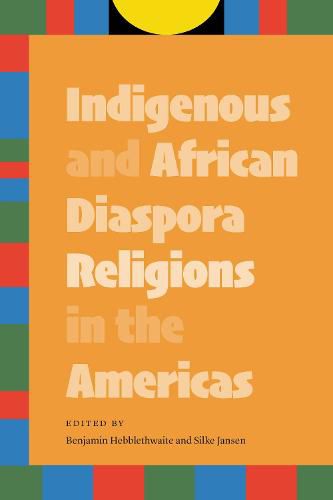Readings Newsletter
Become a Readings Member to make your shopping experience even easier.
Sign in or sign up for free!
You’re not far away from qualifying for FREE standard shipping within Australia
You’ve qualified for FREE standard shipping within Australia
The cart is loading…






Indigenous and African Diaspora Religions in the Americas explores spirit-based religious traditions across vast geographical and cultural expanses, including Canada, the United States, Haiti, the Dominican Republic, Cuba, Trinidad and Tobago, Mexico, Brazil, and Chile. Using interdisciplinary research methods, this collection of original perspectives breaks new ground by examining these traditions as typologically and historically related. This curated selection of the traditions allows readers to compare and highlight convergences, while the description and comparison of the traditions challenges colonial erasures and expands knowledge about endangered cultures.
The inclusion of spirit-based traditions from a broad geographical area emphasizes the typology of religion over ethnic compartmentalization. The individuals and communities studied in this collection serve spirits through rituals, song, instruments, initiation, embodiment via possession or trance, veneration of nature, and, among some Indigenous people, the consumption of ritual psychoactive entheogens. Indigenous and African diaspora practices focused on service to ancestors and spirits reflect ancient substrates of religiosity. The rationale to separate them on disciplinary, ethnic, linguistic, geographical, or historical grounds evaporates in our interconnected world. Shared cultural, historical, and structural features of American indigenous and African diaspora spirit-based traditions mutually deserve our attention since the analyses and dialogues give way to discoveries about deep commonalities and divergences among religions and philosophies.
Still struggling against the effects of colonialism, enslavement, and extinction, the practitioners of these spirit-based religious traditions hold on to important but vulnerable parts of humanity's cultural heritage. These readings make possible journeys of recognition as well as discovery.
$9.00 standard shipping within Australia
FREE standard shipping within Australia for orders over $100.00
Express & International shipping calculated at checkout
Indigenous and African Diaspora Religions in the Americas explores spirit-based religious traditions across vast geographical and cultural expanses, including Canada, the United States, Haiti, the Dominican Republic, Cuba, Trinidad and Tobago, Mexico, Brazil, and Chile. Using interdisciplinary research methods, this collection of original perspectives breaks new ground by examining these traditions as typologically and historically related. This curated selection of the traditions allows readers to compare and highlight convergences, while the description and comparison of the traditions challenges colonial erasures and expands knowledge about endangered cultures.
The inclusion of spirit-based traditions from a broad geographical area emphasizes the typology of religion over ethnic compartmentalization. The individuals and communities studied in this collection serve spirits through rituals, song, instruments, initiation, embodiment via possession or trance, veneration of nature, and, among some Indigenous people, the consumption of ritual psychoactive entheogens. Indigenous and African diaspora practices focused on service to ancestors and spirits reflect ancient substrates of religiosity. The rationale to separate them on disciplinary, ethnic, linguistic, geographical, or historical grounds evaporates in our interconnected world. Shared cultural, historical, and structural features of American indigenous and African diaspora spirit-based traditions mutually deserve our attention since the analyses and dialogues give way to discoveries about deep commonalities and divergences among religions and philosophies.
Still struggling against the effects of colonialism, enslavement, and extinction, the practitioners of these spirit-based religious traditions hold on to important but vulnerable parts of humanity's cultural heritage. These readings make possible journeys of recognition as well as discovery.